How To Become A Zoo Keeper?
«The success of a country and its ethical progress can be evaluated by the way its animals are treated.» – Mahatma Gandhi
Do you love animals and imagine operating in a zoo? Zoo keepers are key in securing wildlife and caring for animals. At places like the Zoological Society of London (ZSL), over 20,000 animals get the care they require from professionals.
To become a zoo keeper, you need effort, education, and a love for animals. This task is amazing, letting you work with numerous species and aid with crucial preservation work. If you’re into wildlife or animal welfare, zookeeping might be ideal for you.
Beginning your zoo keeper profession indicates discovering what’s needed. This guide will cover education, experience, and more. It’s all you require to understand to start a satisfying zookeeping profession.
Comprehending the Role of a Zookeeper
Exploring what a zookeeper does reveals a role filled with challenges and benefits. They concentrate on animal welfare and preservation. Zookeepers strive to keep animals healthy and happy in their care.
Daily Responsibilities and Tasks
A zookeeper‘s day is filled with crucial tasks:
- Preparing meals that meet each animal’s dietary requirements
- Cleaning enclosures to keep them clean and safe
- Watching over animal health and behaviour
- Giving medicines and treatments as needed
- Creating activities to keep animals psychologically sharp
Workplace and Conditions
Zookeepers work outside in all kinds of weather condition. They handle both indoor and outdoor spaces. The task requires being physically fit and able to deal with the needs of looking after animals.
«Being a zookeeper is more than a job – it’s a passionate dedication to animal care and conservation.»
Kinds of Animals and Specialisations
Zookeepers can specialise in numerous animal groups:
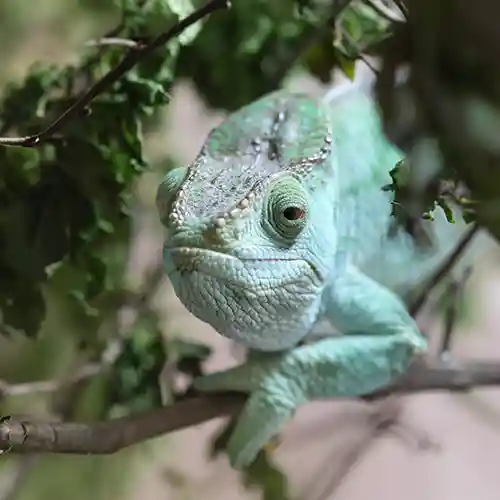
- Primates
- Big cats
- Marine mammals
- Reptiles
- Birds
Your function might involve working with 2-5 various animal types. This requires a great deal of knowledge and the capability to adjust.

Essential Skills and Personal Qualities for Zoo Keeping
To be a top zookeeper, you need more than simply a love for . Your job will be tough and need you to handle animals and people well. You’ll likewise need to comprehend animal behaviour.
What zoos search for in people consists of:
- Exceptional patience and emotional strength
- Strong fitness and stamina
- Eager observation skills
- Capability to stay calm under pressure
- High level of compassion towards animals
Getting hands-on experience is crucial to mastering this function. You’ll need to reveal:
- Advanced understanding of animal care strategies
- Efficiency in animal handling and safety protocols
- Reliable communication with both animals and human visitors
«A fantastic zookeeper connects science, compassion, and preservation in every interaction with animals.»
You must know about animal nutrition, behaviour, and basic veterinarian care. Many zookeepers learn through training, volunteering, and ongoing learning.
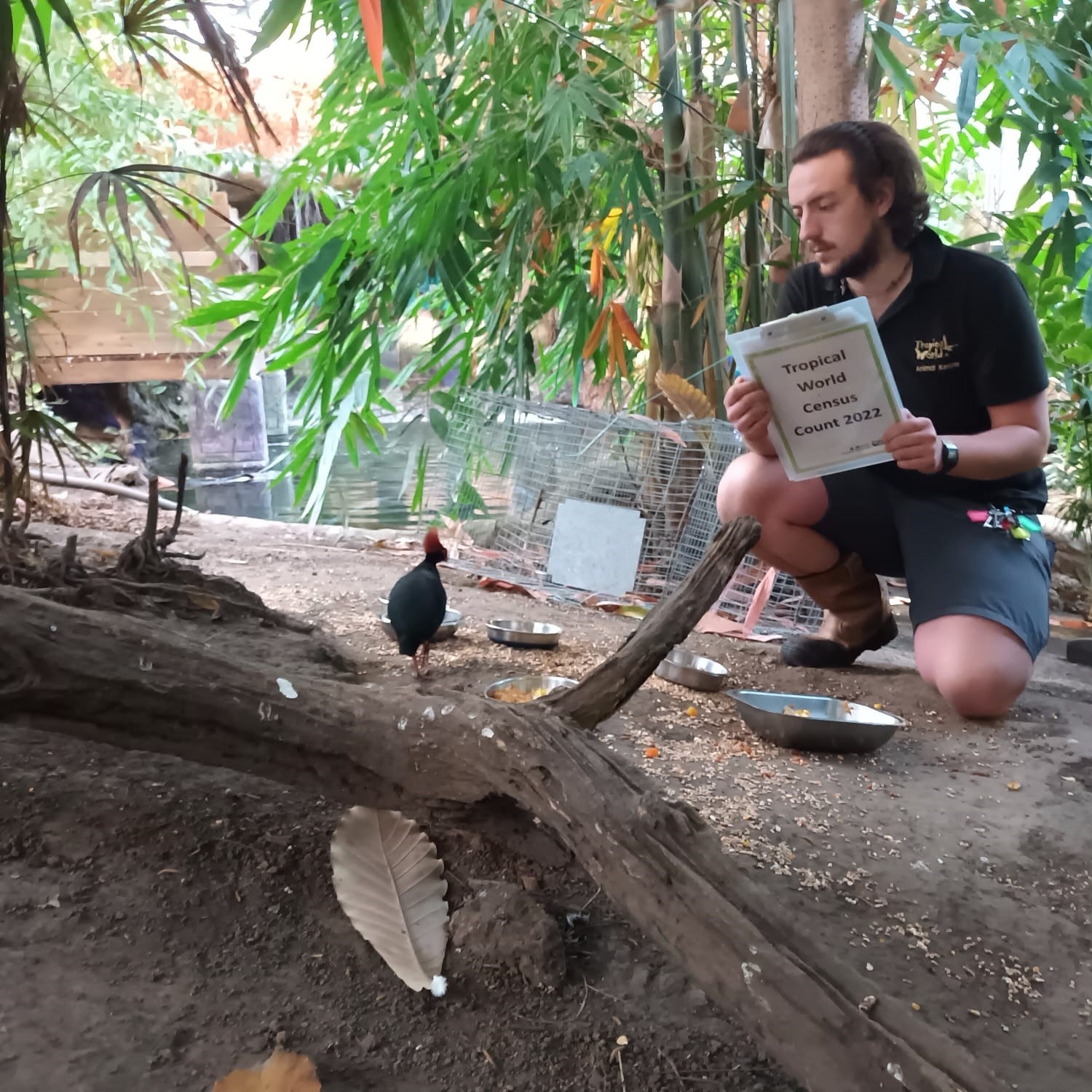
Zookeeper work is not simply a task. It’s a huge commitment to teaching about wildlife and assisting preservation. Your enthusiasm and hard work will make you stick out in this satisfying career.
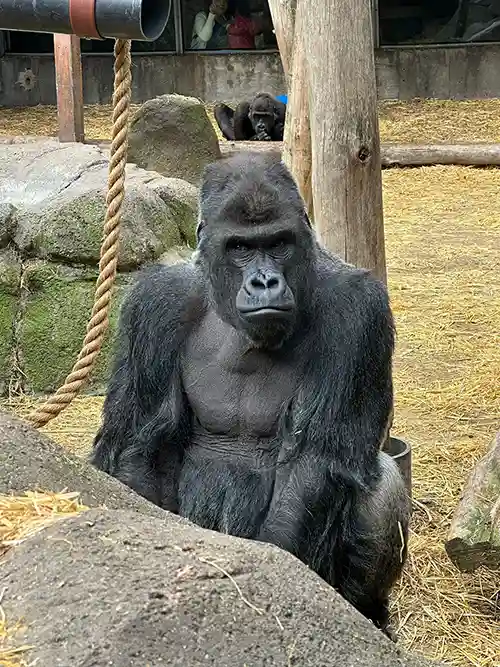
How to Become a Zoo Keeper
Beginning a career as a zookeeper requires cautious planning and education. You need to initially understand the academic needs and training courses. These will turn your love for animals into a job.
Educational Requirements
To be a fantastic zookeeper, you require a strong scholastic base. Many jobs look for certain certifications:
- At least 5 GCSEs at grade 4 or above, including English, mathematics, and science
- A levels or college credentials
- A college degree in biology or zookeeper animal science
- Level 3 Diploma in Animal Management
Necessary Certifications
Getting special certifications can truly assist you in your zookeeper profession. Crucial ones include:
- Diploma in Management of Zoo and zookeeper Aquarium Animals (DMZAA)
- Zookeeping Level 3 Diploma (RQF)
- Animal managing certificates
- Emergency treatment credentials
Training Programs and Apprenticeships
Getting hands-on experience is key in zookeeper training. Many places use terrific opportunities:
- Unpaid apprenticeships at wildlife parks
- Internship programmes at well-known zoos
- Practical training at places like Colchester Zoo and Dartmoor Zoo
- Offering to acquire real-world abilities
Pro suggestion: Create a detailed portfolio to show your animal care skills. It will assist you in job applications.
Building Relevant Experience in Animal Care
Gaining hands-on experience is crucial for those wanting to be zookeepers. The job is extremely competitive. So, it’s important to start developing a strong base in animal care.
Your journey starts with finding ways to work directly with animals. This is a strategic step.
«Experience is the very best teacher in animal care» – Wildlife Conservation Experts
Here work methods to gain experience dealing with animals:
- Volunteer at local animal shelters to develop basic animal dealing with abilities
- Look for internships at wildlife rehab centres
- Check out part-time positions at veterinary clinics
- Contact your local zoo for possible volunteer opportunities
Offering is a great method to discover animal behaviour and care. Many zoos and animal shelters are looking for people who wish to find out. These places provide great chances to get hands-on experience and show your commitment to animal welfare.
Here are some pointers to take advantage of your experience:
- Keep a record of your skills and interactions
- Connect with specialists in animal care
- Request referrals and recommendation letters
- Stay consistent and zookeeper show your true passion
Keep in mind, useful experience makes you stand out in the zookeeping world. Every time you work with animals, you learn more. This increases your opportunities of getting a job in animal care.
Career Pathways and Professional Development
Starting a profession as a zookeeper is interesting. It uses lots of possibilities to grow and specialise. Your journey begins with understanding the various paths in this field.
Entry-Level Positions
Entry-level tasks in zookeeping are a fantastic start. They provide you hands-on experience. Zoos try to find prospects with:
- Level 2 Diploma in Animal Care (minimum qualification)
- GCSEs in English and a scientific topic
- Volunteer experience at animal shelters or farms
Profession Progression Opportunities
As you gain experience, your career can grow. You can move up to:
- Junior Keeper
- Senior Keeper
- Team Leader
- Expert Roles
«Continuous knowing and practical experience are key to advancing in your zookeeping career.»
Specialised Roles
You can also pick unique areas like:
- Conservation breeding programmes
- Animal training
- Wildlife research study
- Educational outreach
About 25% of zookeepers get advanced degrees in zoology or animal conservation. Getting Level 4 credentials can improve your possibilities for senior roles and research study.
Working Hours and Physical Demands
Becoming a zookeeper suggests you’ll work more than simply routine hours. You’ll deal with difficult physical obstacles and need to be versatile, including weekends and holidays. Zoos are open every day, so you’ll frequently work when others unwind.
«Zoo keeping is not a normal 9-to-5 job– it’s a lifestyle of dedicated animal care and commitment.»
This task is physically demanding. You’ll work outside in any weather, raising heavy items over 50 pounds. Your jobs may consist of:
- Early morning feeding schedules
- Cleaning animal enclosures
- Preparing specialised diets
- Performing health checks
- Maintaining complex habitats
Shifts can start as early as 5 AM and go late into the night. You’ll be on your feet the majority of the time, moving in between animal zones. Weekends and holidays become part of the job, requiring great deals of stamina and dedication.
In spite of the challenges, this task has terrific benefits. You’ll grow strong, both physically and mentally. You’ll also make amazing connections with incredible animals.
Health and Safety Considerations
Being a zookeeper comes with its own set of obstacles. It’s essential to understand how to keep both animals and personnel safe. This implies following rigorous health and safety guidelines.
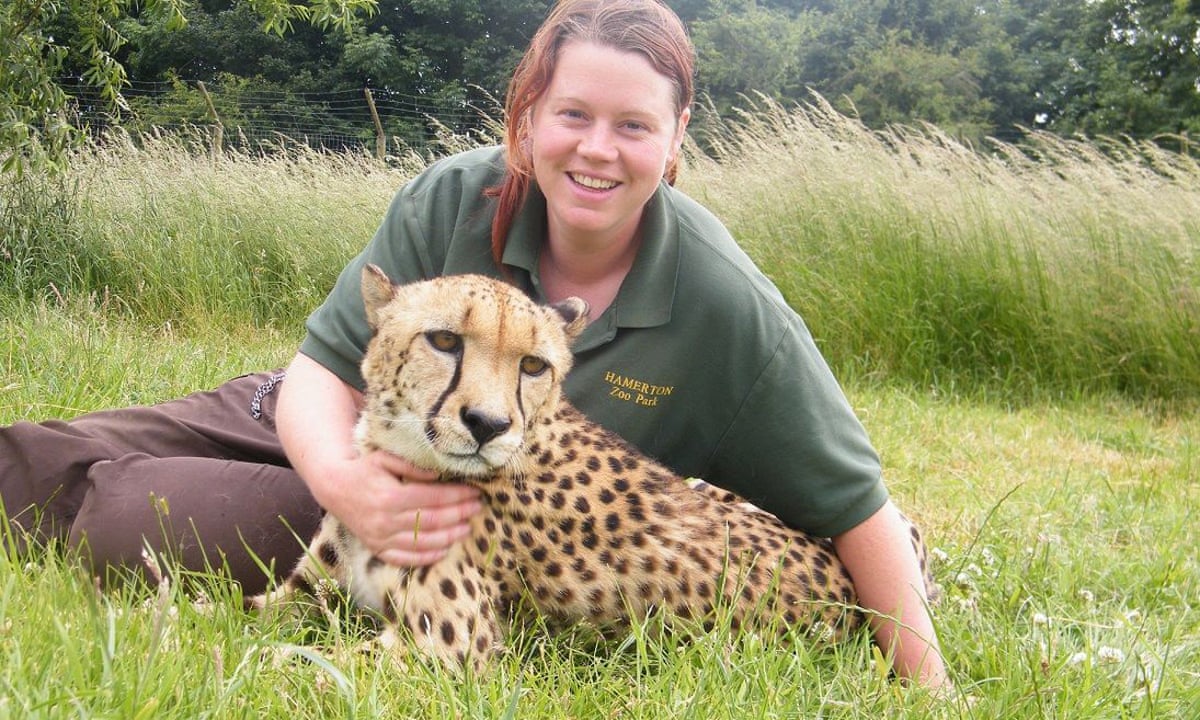
Zookeepers face an unique environment where safety is key. Studies reveal that health and wellness are now as important as the zoo’s primary work.
Danger Management Strategies
There are a number of methods to manage risks in zoos:
- Daily checks of animal enclosures for threats
- Counting animals at the start and end of shifts
- Viewing how visitors act near animals
- Being ready for emergencies
Animal Handling Safety Protocols
Knowing which animals are most hazardous is vital. Big animals like rhinos can be extremely dangerous. There have been cases where zookeepers got seriously injured.
Security isn’t just about using gear – it’s about understanding animal behaviour and staying alert.
Individual Protective Equipment
Zookeepers need to wear the ideal gear, consisting of:
- Special gloves for handling animals
- Strong shoes for grip and security
- Clothes that protects versus germs
Getting vaccinated against diseases like hepatitis B and rabies is likewise crucial. It helps keep zookeepers healthy in their tough job.
Wage Expectations and Job Market
Thinking about a career in zoo keeping? It’s important to understand about wages and the job market. The field is growing, zookeeper with more chances in the UK.
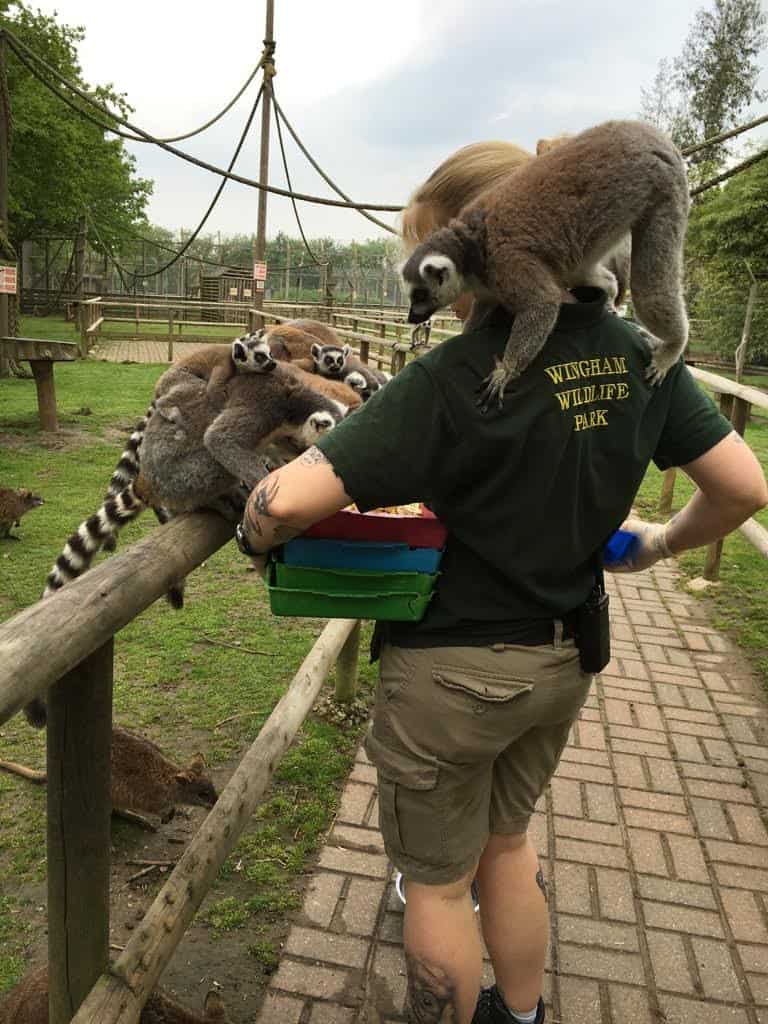
Let’s look at what zoo keepers can earn at different phases:
- Entry-level zookeepers begin at about ₤ 14,000 a year
- Certified ones make in between ₤ 16,000 and ₤ 22,000
- Senior zookeepers can make approximately ₤ 30,000 or more
The task outlook for zoo keepers is great. The sector is expected to grow by 5% in the UK by 2029. This indicates around 3,910 brand-new tasks will be readily available.
«The Association of Zoos and Aquariums supports professional development for zoo keepers,» a report says.
Wages vary based upon numerous things:
- Experience level
- Specialisation
- Where you work
- The zoo’s size and type
While the pay may not be high, the happiness of working with animals is priceless. The average wage is around ₤ 17,000. But, total profits can be in between ₤ 13,000 and ₤ 27,000 a year.
Conclusion
Beginning a career in animal care is an exciting journey. It needs dedication, enthusiasm, and a love for learning. With over 350 zoos and wildlife places in the UK, there are many job opportunities. You’ll get to deal with incredible animals and help safeguard wildlife.
To be a zoo keeper, you need more than just love for animals. You should have a good understanding of biology, be able to communicate well, and always wish to find out more. You’ll gain hands-on experience, learn about animal welfare, and develop a deep respect for nature. About 3,000 individuals in the UK have found satisfying careers in this field.
Your success in zoo keeping comes from blending science with a love for animals. Whether you’re interested in mammals, birds, or marine life, this task lets you aid with conservation. Every day will bring new obstacles and learning opportunities that will enhance your skills and knowledge.
If you love animals and wish to assist safeguard wildlife, zoo keeping might be for zookeeper you. Handle the challenge, stay curious, and turn your passion for animals into a fulfilling career.



